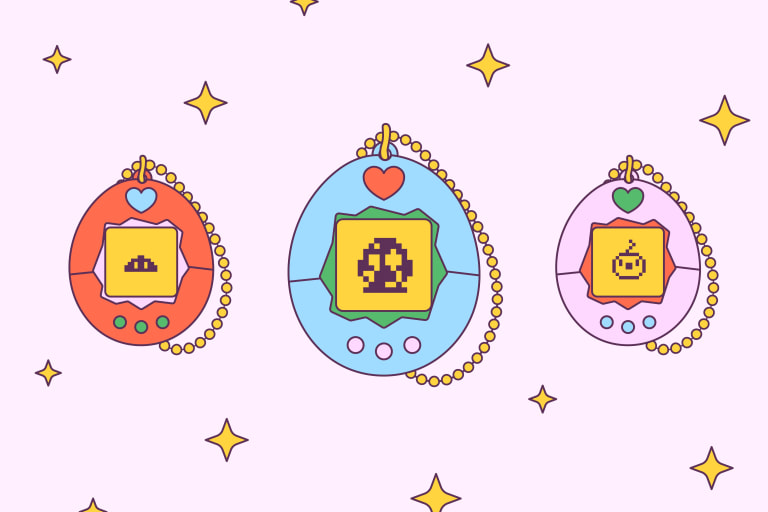
Your 22-Week-Old Baby
Help your curious baby explore safely with expert tips on babyproofing, safe setups and creating spaces that inspire discovery.

In This Article
Your baby isn’t on the move just yet, but they’re still extremely curious about their surroundings (and plotting their next discovery). Around this stage, curiosity takes over as your baby starts to explore their surroundings in new ways.
Their vision, hand-eye coordination and strength are improving every day, making it easier to grab and get into just about anything they can reach. That’s why now is a good time to start thinking about babyproofing your space.
As you prep your home for baby’s growing curiosity, we talked with pediatrician Dr. Gabriella Dauer, author of Beyond the Basics: A Pediatrician’s Newborn Guide, and Dr. Chris Klunk, a board-certified neonatologist with Pediatrix Medical Group, about how to create a safe, exploration-friendly environment that lets your baby learn and play without unnecessary worry.
🚼 Baby’s Development
Budding Curiosity
Your baby has spent the last several weeks learning to roll and reach toward objects, testing what all their body can do and seeing how the world responds. And with those milestones comes the development of baby’s natural curiosity and their drive to explore, which helps strengthen muscles, coordination and cognitive development—but can sometimes cause a bit of anxiety for caregivers.
That doesn’t mean you need to babyproof everything, though. Dr. Dauer encourages parents to let baby explore safely, which means finding the right balance between encouraging baby’s curiosity with the need to keep certain areas and items off limits. “Babyproof what can really harm baby, and you can leave out safe items for them to play with, like pots, pans and cooking tools,” she says.
Around five months old is when babies first start learning about cause and effect (“If I drop this spoon, it makes a sound!”), and they’re building fine and gross motor skills through constant trial and error. So even though your baby isn’t mobile yet, you can still give them opportunities to build these skills through exploring and engaging with their world.
Plop them down in front of an unlocked (and safe) cabinet or drawer and let them experience the joy of opening it and discovering what’s inside. Move their playard or playmat into a different room some days for a change of scenery. Hand them interesting things to hold while on a walk outside (just watch out for what they put in their mouth).
❓ Weekly How-To: Babyproof Your Home
When it comes to prepping your home for baby’s safe exploration, Dr. Dauer says harmful chemicals should be first on your babyproofing list. Anything that’s toxic for baby to ingest—household cleaners, laundry detergents and pods, medications—should be placed high up out of baby’s reach and/or in locked cabinets. (If you’re concerned about household chemicals in particular, check out our list of baby-safe cleaning products.)
For the rest of your home, Dr. Klunk recommends starting from the ground up. “Get down on your baby’s level to really see what they can reach or get into,” he says. “So focus on what can be reached from the floor. Make sure there’s nothing small they can swallow, cords that can be tugged on to pull appliances off counters or tables, cabinets that can be opened to reach harmful chemicals, electrical outlets for little fingers to explore and stairs to climb or fall down.”
There are plenty of babyproofing products out there to help you with all those basics (we’ve linked to some of our favorites below), but Dr. Klunk says parents shouldn’t stop there. “Pet bowls, litter boxes, dangling cords from blinds and curtains and small objects that pose choking risks are often overlooked,” says Dr. Klunk.
As your baby becomes more mobile over the next few months, you can start to shift your focus upward: anchoring shelves, dressers and other tall furniture to prevent tipping accidents.
Ready to get started? Dr. Seran Kim, a board-certified Emergency Physician, provides this handy childproofing checklist to help you make sure you’re taking care of all potential safety hazards:
An ER Doctor's Childproofing Checklist

👀 Looking Ahead
Starting solids: Right around six months old is when many babies start trying solid foods for the first time. It’s an exciting (and messy) milestone that opens up a whole new sensory world.
🛍️ Panic Order
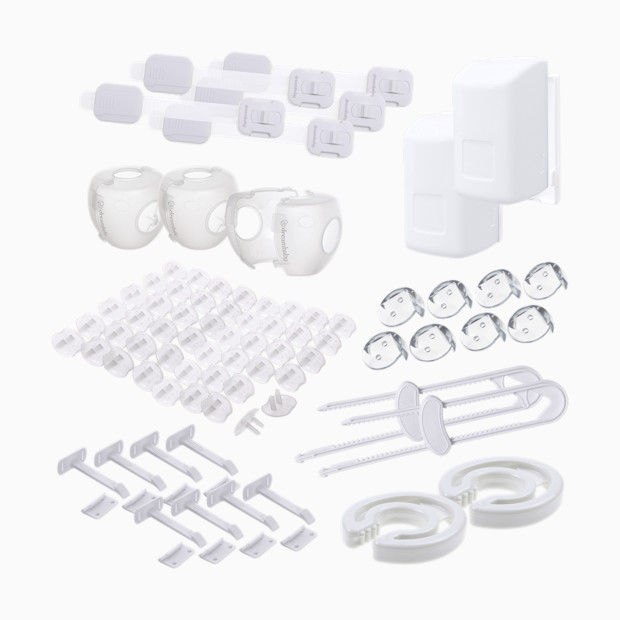
Dreambaby
Whole Home Safety Set, 78 Piece Set

Jool Baby
Outlet Plug Covers (32 Pack)
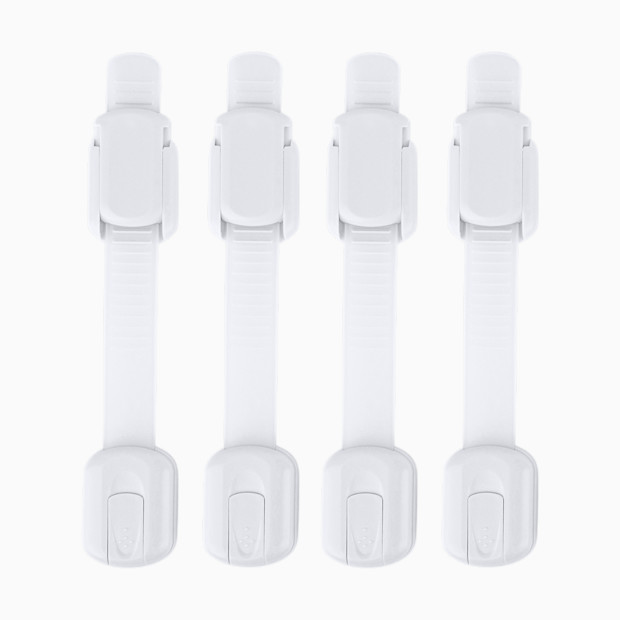
Jool Baby
Multi-Purpose Adhesive Child Safety Strap (4-Pack)
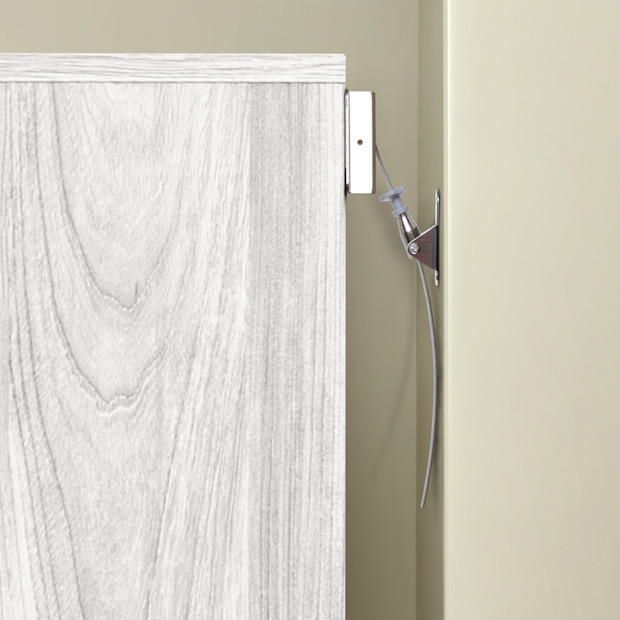
Dreambaby
Furniture Anchor
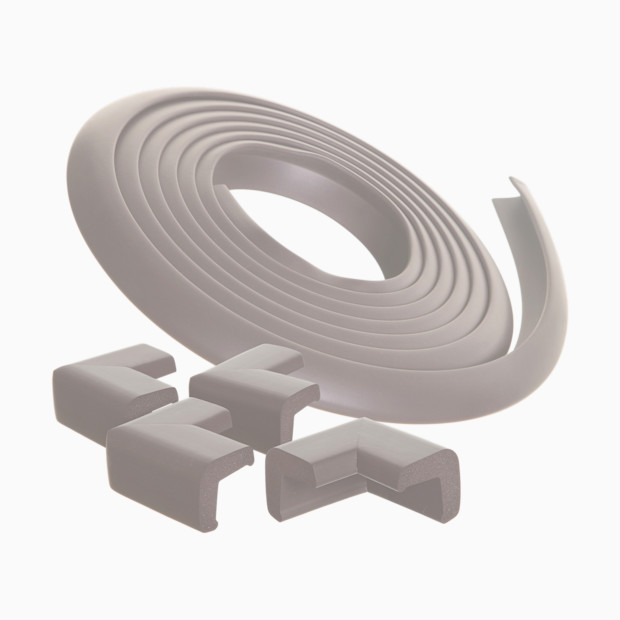
Dreambaby
Furniture Bump Guard Kit
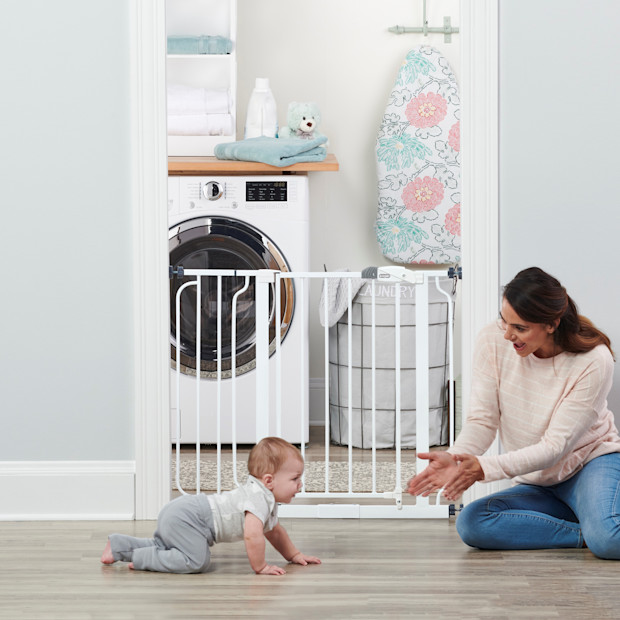
Regalo
Easy Step Baby Gate

Dreambaby
Glide 'N Hide Extra Tall Retractable Baby Gate
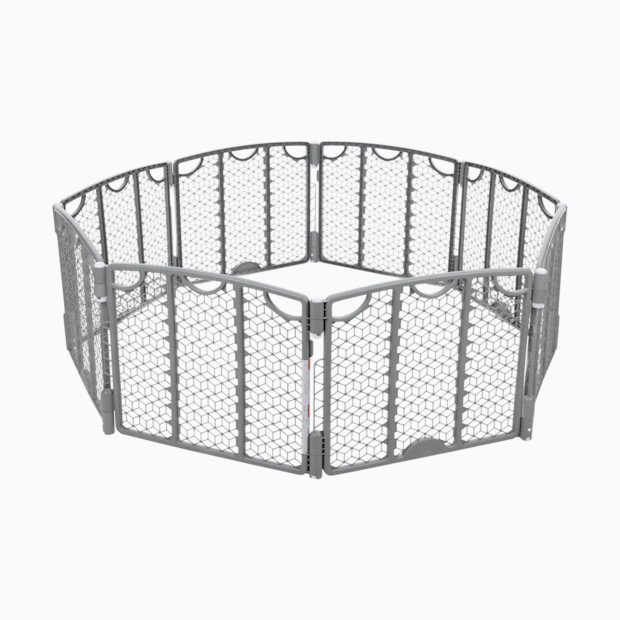
Evenflo
Versatile Play Space 8 Panel

Grove Co.
Multi-Purpose Cleaner Concentrate, 2-Pack
Expert Sources
Babylist content uses high-quality subject matter experts to provide accurate and reliable information to our users. Sources for this story include:
Dr. Gabriella Dauer, pediatrician and author of Beyond the Basics: A Pediatrician's Newborn Guide
Dr. Chris Klunk, board-certified neonatologist at Pediatrix Medical Group
Dr. Seran Kim, a board-certified Emergency Physician
